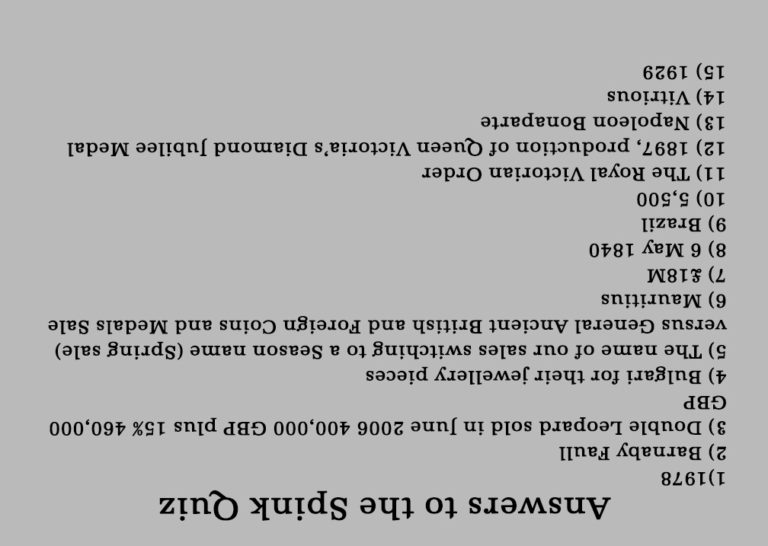
Emma Howard
Heroes of The Covid-19 Crisis
CAPTAIN SIR TOM MOORE'S MEDALS
Spink are proud to announce that our Medal Services Department will be remounting Captain Sir Tom Moore’s Second World War campaign medals. As many readers will have seen, Sir Tom was recently re-presented with his Defence Medal; this will now be added to his medal bar in its official position between the Burma Star and the War Medal. We are also providing a new set of miniature medals; more information will follow in our next print issue.
put your brain to the test for the NHS!
92-year-old Stephen Graham served as an officer in the Black Watch for 18 years (and “succeeded in getting no medal of any kind!”) before switching to a career in teaching. He retired to Hampshire, and as the surviving brother of iconic crossword setter Araucaria – the Rev John Galbraith Graham MBE, founder of 1 Across magazine – turned his hand to setting a cryptic Christmas quiz for charity around ten years ago – though he modestly says he feels “far, far below his standard”.
During the current Covid-19 crisis he was contacted by regular quizzers requesting a coronavirus-themed edition of the quiz to entertain them during lockdown, and with the help of his son Andy, who set up a Just Giving Page, the ‘self-isolation special’ has since raised nearly £14,000 for NHS workers.
The quiz comes with a minimum donation of £10, with the money raised going to NHS Charities Together. Simply sign up online and you will receive the questions at https://www.justgiving.com/fundraising/quizcvspecial.
You can donate anonymously but you must tick the box that says “I’m happy to share my contact details with Andy Graham”, the last box you see before the final “Confirm donation”, so that he knows where to send the Quiz. For any problems please email [email protected]. As a special for Spink readers, Andy will send out the answers via our next online issue, or individually upon request.
The Insider caught up with Mr Graham during lockdown to seek his thoughts on a few Covid-19-related questions:
How do you think the crisis has affected the general mood of the nation?
I think it has brought out the best in most people, with the attitude “we’re all in it together”, and has shown that people can be capable of all kinds of kindnesses they didn’t know they were capable of.
What gave you the idea of raising funds for the NHS, and how would you want the money to be spent?
Of course it is up to them, but I would like to think it is going directly to anyone working on the front line to give them a little lift – nurses and anyone doing the hands-on stuff, especially people in nursing homes.
Do you think that people of your generation
are better at dealing with the current restrictions, having lived to some extent through post-WW rationing?
Possibly, but even at 92 I’m too young to really remember all these things – though fruit such as bananas were a real treat when we were re-introduced to them after the war. The younger generation is not used to not being able to get an avocado!
Why do you think it is important to keep the mind active during this lockdown period?
It is always important to keep the mind active if you’re going to stay human, and of course there’s much less stimulation for the mind during lockdown – quizzes etc are essential in order not to spend too much time watching TV! I was brought up to play board games and family games. You can learn so much from game playing – patience, how to take turns, how to control your temper and to think of others, especially when the game involves mixed ages!
How did your career as a soldier stand you in good stead to deal with life in general?
Certain things instilled discipline in one, and being an officer you had to look after your men – their welfare – your families as well, and soldiers’ wives and families. The caring side has been useful, and the sense of a team spirit – which I believe the Government has been trying to emphasise during this current crisis.
Do you think the army has a bigger part to play in dealing with the continued restrictions?
Their labour can always be used – moving stuff about, driving ambulances etc. The army is of course very good at basic organisation and at helping wherever they’re needed, in whatever capacity.
What advice would you give to anyone attempting cryptic puzzles for the first time?
Get into the twisted mind of the devilish setter! All setters have different ways of looking at things and there are an awful lot of tricks you have to learn – what are anagram indicators, where words are hidden inside the sentence, and various little tricks like reading things backwards – the indications aren’t always clear. “Outskirts of Derby” for example means “dy”. Don’t be daunted! Setters love trying to fool you – very often the first word of the clue is a key word which you should not necessarily link to the second and third words. You do not need to be scholarly to tackle cryptic crosswords and puzzles.
SSAFA, the Armed Forces charity – a Volunteer Caseworker’s view
SSAFA, the Armed Forces charity – now in its 135th year, and one of the oldest tri-service military charities – has roots back to the period after the Crimean war (1853-1856), when a visionary Major (James Gildea), serving on the front line, believed that the general public at home in the UK should be encouraged to support the families of soldiers serving in Crimea.
Major Gildea was ably supported in that view by Princess Alexandra, who later became Queen Alexandra, wife of King Edward VII. Before WW1 only single men were permitted in the Armed Forces below Officer rank, because it was thought that dependents were a distraction. When husbands began to be called up, they had a challenge: how to support those left at home. SSFA (as it was then called) had a ready-made UK-wide network which was used by the Government to distribute state welfare throughout the war years.
SSAFA began as SSFA (Soldiers, Sailors and Families Association), as the RAF was only formed at the end of WW1 – in 1918 it then became SSAFA, the Soldiers, Sailors, Airmen and Families Association. The period after the formation of SSFA in 1885 saw the emergence of our volunteer force, a format which remains identical today in its aims and support as that envisaged at its inception.
In the early years of the 21st Century, a very large proportion of SSAFA’s volunteer work concentrated on veterans who had served during WW2 and those who had completed national service (which ended in 1963). From 2010 onwards SSAFA saw the veteran profile change dramatically, as did the range and complexity of cases it deals with.
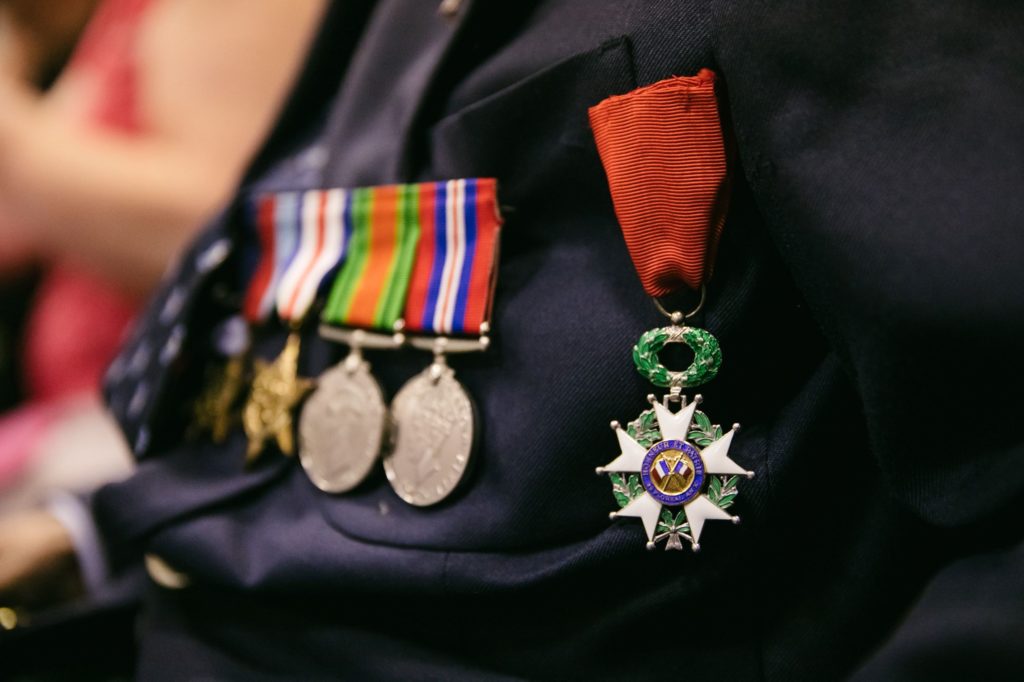
Younger veterans who had served in Northern Ireland, the Falklands, Iraq and Afghanistan, needed different types of support, which required a change of approach by volunteers to handle such wide and varying requirements for help. Due to the evolution of medical science, many service personnel were surviving hugely complex injuries, and many were dealing with the repercussions of what they had seen, be that post-traumatic stress, anxiety and other mental health conditions.
Armed with the necessary forms and documents, 21st century volunteer caseworkers meet the challenges in the same robust way as those of their predecessors, but prepared to deal with the unusual. Following a request for assistance, they go through a process:
“I arrange to visit a veteran’s home. This gives comfort and confidence, and a chance to build up my knowledge of the veteran’s requirements. It was inspirational when a caseworking colleague found he was visiting a veteran who had landed on D-Day with Major John Howard, taking part in the assault on Pegasus Bridge in France. He listened with interest to reminiscences of the event, which had probably not been fully appreciated by the civilians in this D-Day veteran’s civilian life.
“Such cases were commonplace until 2010/2012, but then the emphasis changed. Veterans are now much younger, enduring a different type of suffering and vastly differing needs. Our role at the City of London Division of SSAFA, where routinely the team handles 400 cases per year, is to respond to a much wider range of requirements than those existing in 1885. Our support is extremely wide-ranging, for example we can assist with the acquisition or replacement of service medals and decorations lost or stolen over time, as well as finding somewhere for a veteran to rent and furnishing a home. If a veteran is looking for work, we can source funding for retraining for employment (and subsistence during that time) and assist with the job application process.
“Our relationships and networking with other charities means we can have a holistic approach to the support we provide to the Servicemen and Women, some of whom have experienced long and difficult tours of duty, and others with short but profoundly damaging personal stories.
Being a SSAFA volunteer is not a 9-5 role in any respect, it requires a commitment to dealing with all requirements as and when necessary, no matter how long it takes to complete a case. Such is the huge dedication of volunteers in Central London, which also operates SSAFA’s only ‘drop-in’ Centre, that 10 years of service as a volunteer is not unusual – I have served 16 years.”
Volunteers have had to respond flexibly to the challenges COVID-19 has presented them with, operating remotely by phone and video conferencing to meet the needs of the Veteran Community.
Since early March this year, the Division has located a Homeless Veteran to permanent hostel accommodation, dealt with 18 period support payments to dependents of veterans, investigated 11 new cases of need and presented all these cases with the appropriate financial support. This is a huge workload for volunteers operating from their own homes.
“This sense of duty and commitment is derived from our ancestors: what better example could we have than that of Florence Nightingale, who served with such distinction caring for humanity during the Crimean war, and the commitment and discipline of the solders during that famous Charge of the Light Brigade.”
Cassa Duncan, May 2020
For more information on SSAFA please visit www.ssafa.org.uk.
THE MEDALS OF SERGEANT HENRY WICKHAM
One of the heroes of the Charge of the Light Brigade was Sergeant Henry Wickham of the 13th Light Dragoons, whose medals were sold for £14,800 in the Spink April Medals auction, which was held behind closed doors at Southampton Row. Wickham was present at the battles of Alma, Balaclava, Inkerman and Sebastopol, and received a severe lance wound in 1854 during the Charge; his heroic actions were immortalised in Lady Butler’s painting ‘The Return’, in which he is seen to drag a wounded comrade to safety despite being severely injured himself. Wickham received no pension, his lance wound eventually leaving him incapacitated and unable to work. He died destitute and in unbearable physical pain, his death being tragically reported in the Clapham Observer on 18th June 1892: ‘He has been left to die in almost abject poverty – and that is how England treats its heroes!’ Wickham’s medals surpassed their estimate of £5,000 by nearly three times, the Battle of Balaclava being regarded as one of the most infamous days in British military history and therefore of huge historical interest.
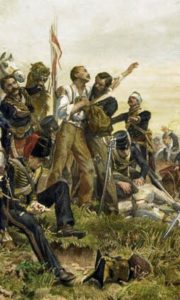
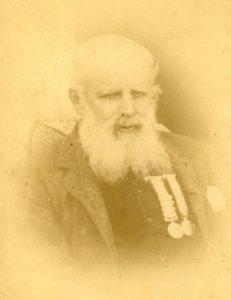

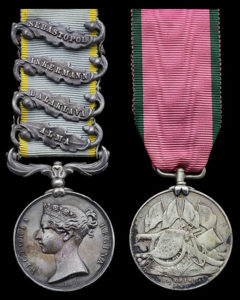
A bit of fun to keep you occupied during the continued lockdown: The Spink Lockdown Quiz
- When was the first Spink coin auction in London?
- Whose Spink career started at around the age of 16 in the coin department?
- What was the most expensive British coin sold by Spink?
- Which famous luxury company bought coins to put into their products?
- What did the Coin Department change last year that had remained the same for more than 30 years?
- Spink holds the record price for a single stamp sold in this country. Which country did it come from?
- What was the total (to within £1 million) for the combined total of all the Chartwell stamp sales?
- What was the official date of issue of the world’s first GB postage stamp, the Penny Black?
- Which country was the second in the world to issue postage stamps?
- How many parcels were sent by the Spink Auction Team last year via registered mail and tracked courier?
- The wedding of the Duke and Duchess of Sussex was closely watched by millions. Which British Order did Prince Harry wear as he made his vows to Meghan?
- What year, and why, did Spink receive its first Royal Warrant?
- France’s Legion d’Honneur (Legion of Honour) dates back to 1802, and was founded by which historical figure?
- What kind of enamel is usually used in the production of Spink medals?
- Which year was the first catalogue of the coins of Great Britain published?
Answers can be found at the bottom of the page but if you have difficulty reading upside down please email [email protected] …
